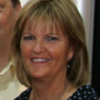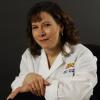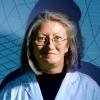Speakers
 |
Jordana Bell |
 |
Cindy BellCindy Bell joined Genome Canada in August 2000. From 2000-2008 she held the position of Vice-President, Genomics Programs in which she was responsible for providing policy and strategic advice on scientific and other aspects of Genome Canada’s programs. This included overseeing and managing the peer review process used to establish the research program of Genome Canada. In her role as Executive Vice President, Corporate Development she provides leadership in the development and implementation of strategic, initiatives and approaches to enhance Genome Canada’s business model and secure funding to support genomics research in Canada. Prior to joining Genome Canada, Dr. Bell was a Deputy Director in Programs Branch at the Canadian Institutes of Health Research from 1994 to 2000. At CIHR she managed a number of research programs and was involved in policy development and implementation. From 1986 to 1994, Dr. Bell was a researcher at the University of California, Riverside. Her research focused on investigating the basic defect in the genetic disease, Cystic Fibrosis. She obtained her Ph.D. in Genetics from McGill University in 1986. Mme Cindy Bell est entrée en fonction à Génome Canada en août 2000. De 2000 à 2008, elle a occupé le poste de vice-présidente, Programmes de génomique. À ce titre, elle devait fournir des conseils en matière de politiques et de stratégies sur les aspects scientifiques et autres des programmes de Génome Canada. Elle a notamment supervisé et géré le processus d’évaluation par les pairs utilisé pour mettre en place le programme de recherche de Génome Canada. À titre de vice-présidente, Développement corporatif, Mme Bell dirige maintenant l’élaboration et la mise en œuvre d’initiatives et de moyens stratégiques qui amélioreront le modèle d’affaires de Génome Canada et lui procureront du financement pour appuyer la recherche en génomique au Canada. Avant Génome Canada, de 1994 à 2000, Mme Bell a occupé les fonctions de directrice adjointe à la Direction générale des programmes des Instituts de recherche en santé du Canada. Elle y a dirigé divers programmes de recherche et participé à l’élaboration et à la mise en œuvre de politiques. De 1986 à 1994, Mme Bell a été chercheuse à l’Université de Californie à Riverside. Ses recherches ont porté sur l’anomalie de base de la fibrose kystique, une maladie génétique. Elle a obtenu un doctorat en génétique de l’Université McGill en 1986. |
 |
Joseph BeyeneDr. Joseph Beyene is an Associate Professor in the Department of Clinical Epidemiology & Biostatistics, and the inaugural chair holder of the John D. Cameron Chair in Genetic Determinants of Chronic Diseases, Population Genomics Program (PGP), McMaster University. Prior to coming to McMaster, he was an Associate Professor of biostatistics in the Dalla Lana School of Public Health, University of Toronto and a Senior Scientist at the Research Institute of the Hospital for Sick Children, Toronto. Dr. Beyene’s primary research focus is in the development and application of statistical methods for genetics and genomics data, meta-analysis/systematic review and predictive modeling. His current focus is developing, evaluating and deploying analytical methodology for data integration using diverse sources of data sets allowing synthesizing of information at the molecular, clinical, environmental and population level. |
 |
Kym Boycott |
 |
Anthony Brookes |
 |
Michael BrudnoMichael Brudno is the Canada Research Chair in Computational Biology and an Associate Professor in the Department of Computer Science and the Donnelly Centre at the University of Toronto. After receiving a BA in Computer Science and History from UC Berkeley, Michael Brudno got his PhD from the Computer Science Department of Stanford University, working on algorithms for whole genome alignments. He completed a postdoctoral fellowship at UC Berkeley and was a Visiting Scientist at MIT before starting his position at Toronto. Michael Brudno’s main research interest is the development of computational methods for the analysis of genomic datasets, especially High Throughput Sequencing data, including methods for the discovery of structural and copy-number polymorphisms and other genomic variation, identification of functional variants, and visualization of genomic data. He has also worked on comparative genomics, molecular evolution, and cloud computing. He is the recipient of the Ontario Early Researcher Award and the Sloan Fellowship, and was recently appointed the Director of the Center for Computational Medicine at the Hospital for Sick Children. |
 |
Shelley Bull |
 |
Jean-Laurent Casanova |
 |
Jayne DanskaDr. Danska is a Senior Scientist at the Hospital for Sick Children and Professor in the Faculty of Medicine at University of Toronto with appointments in the Departments of Immunology, and Medical Biophysics. She has made contributions to understanding immunological and genetic causes of Type 1 diabetes (T1D), the molecular basis of acute lymphoid leukemia (ALL), and innate immune surveillance of normal hematopoietic and leukemic stem cells. She has lead multi-disciplinary projects applying genetic, genomic and immunological analysis in rodent models to identify T1D-risk genes and to determine how these variants control autoimmune pathogenesis. More recently these studies have addressed gene X environment interactions in T1D, specifically the role of the intestinal microbiome in modifying inherited disease risk in rodent models and in prospective longitudinal studies in children with high genetic risk for T1D. Her group defined relationships between DNA repair and genome damage surveillance pathways in ALL in rodent models and in primary human leukemia. Their work is focused on mechanisms that allow ALL dissemination to the central nervous system, and pre-clinical development of targeted kinase inhibitors to treat B-ALL. Dr. Danska is a Principle Investigator in The Californian and Canadian CIRM-CSCC study entitled “Development of Highly Active Anti-Leukemia Stem Cell Therapy (HALT)” and in the Ontario Institute of Cancer Research project on Cancer Stems Cells. Dr. Danska and her collaborators discovered a signaling pathway in macrophages pivotal to the survival of human hematopoietic stem cells (HSC) and acute myeloid leukemia stem cells (AML-LSC) that sustain leukemic growth. They are developing biologic therapeutics to manipulate this axis to improve outcomes of HSC transplantation, and to block the survival of AML-LSC. |
 |
Pierre Drapeau |